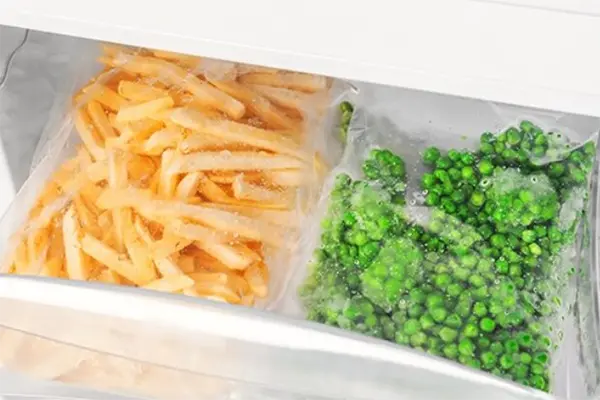Frozen food has become a staple in many households, offering convenience and longer shelf life. However, the packaging used for frozen food often contributes to environmental issues. Thankfully, innovative technology is paving the way for sustainable frozen food packaging solutions.
The Need for Sustainable Frozen Food Packaging
As our awareness of environmental concerns grows, so does the demand for sustainable packaging solutions. Traditional frozen food packaging, often made from materials like expanded polystyrene (EPS) or non-recyclable plastics, poses significant challenges in terms of waste generation and pollution. To address these issues, innovative technologies are emerging to revolutionize the frozen food packaging industry.
Innovative Technologies for Sustainable Frozen Food Packaging
- Biodegradable and Compostable MaterialsOne of the most promising advancements in sustainable packaging is the development of biodegradable and compostable materials. These materials are derived from renewable sources such as plant-based polymers, cellulose, or even agricultural waste. They offer similar functionality and durability as conventional packaging materials but with the added benefit of being biodegradable and compostable. When disposed of properly, these materials break down naturally, reducing the environmental impact significantly.
- Recyclable and Recycled MaterialsAnother significant step towards sustainability is the use of recyclable and recycled materials in frozen food packaging. Manufacturers are increasingly opting for materials like cardboard, paperboard, and high-density polyethylene (HDPE), which can be easily recycled. Additionally, the use of post-consumer recycled content helps reduce the demand for virgin materials and minimizes waste.
- Advanced Insulation TechnologiesMaintaining the desired temperature is crucial for preserving the quality and safety of frozen food products. Advanced insulation technologies are being developed to enhance the thermal performance of packaging while reducing the environmental footprint. These technologies utilize materials with excellent insulating properties, such as vacuum-insulated panels (VIPs) or bio-based insulating materials. By improving insulation efficiency, less energy is required for transportation and storage, resulting in reduced greenhouse gas emissions.
Benefits of Innovative Sustainable Packaging
The adoption of innovative sustainable packaging for frozen food brings numerous benefits to both the environment and consumers. Let’s explore some of the advantages:
- Reduced Environmental ImpactSustainable packaging solutions significantly reduce the environmental impact associated with frozen food packaging. By using biodegradable, compostable, or recyclable materials, the amount of non-biodegradable waste and plastic pollution is minimized. Moreover, the incorporation of recycled content reduces the need for resource extraction and lowers energy consumption during production.
- Enhanced Brand ReputationEmbracing sustainable packaging demonstrates a commitment to environmental responsibility, leading to an enhanced brand reputation. Consumers are increasingly conscious of their purchasing decisions and actively seek eco-friendly options. By adopting innovative sustainable packaging, companies can attract environmentally conscious consumers and differentiate themselves in the market.
- Improved Product Shelf LifeInnovative sustainable packaging technologies also contribute to improving the shelf life of frozen food products. These packaging solutions offer excellent insulation properties, helping maintain the desired temperature and preventing temperature fluctuations that can compromise product quality. By extending the shelf life, less food waste is generated, reducing both economic and environmental losses.
- Consumer Engagement and EducationSustainable packaging provides an opportunity for consumer engagement and education. By clearly communicating the eco-friendly features of the packaging, companies can raise awareness about the importance of sustainable choices and inspire consumers to adopt more environmentally responsible behaviors. This engagement fosters a sense of shared responsibility in preserving the planet for future generations.
Conclusion
Innovative technology is revolutionizing the frozen food packaging industry by introducing sustainable alternatives to traditional packaging materials. From biodegradable and compostable materials to recyclable options and advanced insulation technologies, these innovations prioritize the preservation of frozen food while minimizing the environmental impact. By embracing sustainable packaging, we can contribute to a greener future, reduce waste generation, and enhance the overall sustainability of the frozen food industry. Let’s embrace these advancements and make a positive impact on the environment, one package at a time.
Post time: 04-25-2024


